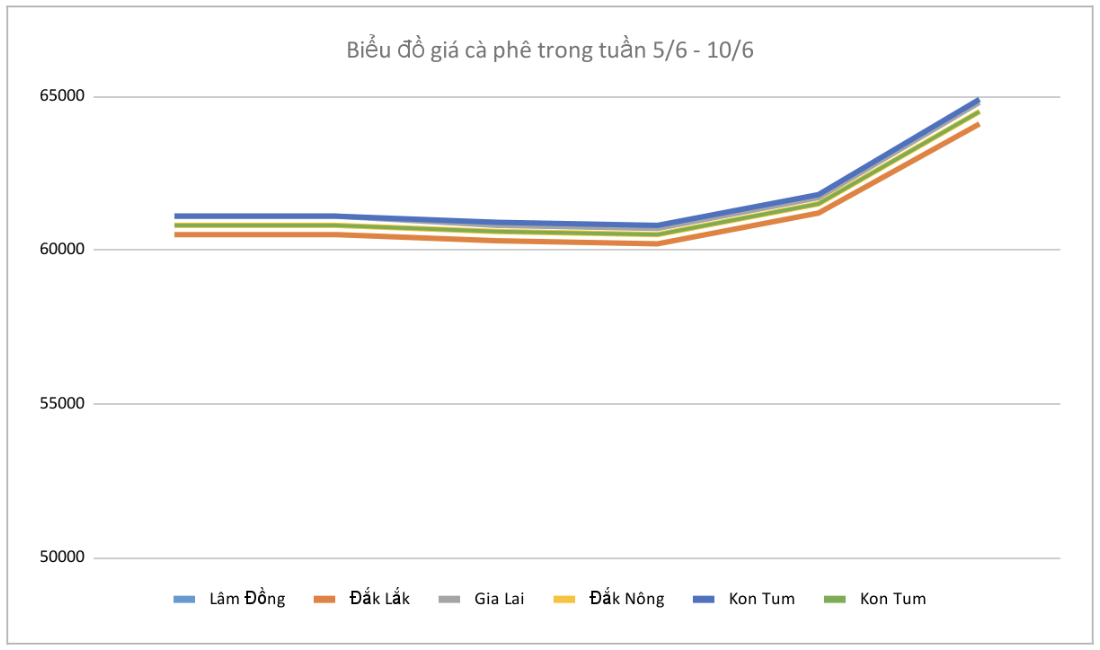Coffee prices today (June 11) fluctuated between 64,100 - 64,900 VND/kg. Over the past 6 days, the coffee market has been on an upward trend. At the end of the week, localities recorded an increase of 3,400 - 3,600 VND/kg compared to the beginning of the week.
Update domestic coffee prices
Coffee prices generally increased last week. Compared to the beginning of the week, provinces and cities recorded increases in the range of 3,400 - 3,600 VND/kg.
Of which, Lam Dong province recorded a transaction price of 64,100 VND/kg - the lowest level at the present time, an increase of 3,400 VND/kg.
Next, Kon Tum and Gia Lai provinces recorded a transaction price of 64,500 VND/kg, an increase of 3,500 VND/kg.
Dak Lak province is buying coffee at VND64,800/kg at the weekend after increasing by VND3,600/kg.
Dak Nong's purchase price is 64,900 VND/kg, an increase of 3,600 VND/kg.

Coffee price fluctuations last week. Unit: VND/kg. Compiled by: Anh Thu
Update world coffee information
Inflationary pressures have started to ease this year but some products like robusta coffee have still seen prices rise to all-time highs, according to Tasting Table.
Robusta coffee is one of two commercially produced coffee varieties, along with the more familiar arabica, and accounts for about 40% of the world's coffee production.
The price increase comes as a bit of a shock because robusta is typically the cheaper of the two and is often used in low-end applications like instant coffee. Although it originates in Africa, the majority of robusta production is in Southeast Asia and Brazil, and weather in both regions has been a factor in the price increase.
Robusta coffee prices hit an all-time high of $2,785 a tonne on May 9, driven by ongoing drought-related shortages in Brazil and forecasts that major producers Indonesia and Vietnam are likely to experience El Niño this year.
Brazil and other parts of South America have been hit by a persistent drought with high temperatures and low rainfall, causing agricultural output in the world's largest coffee-producing country to plummet.
Now, El Nino forecasts threaten to make the coffee production problem worse, as rising water temperatures associated with the phenomenon could cause drought and flooding, damaging crops in one of the world's other major coffee-growing regions.
Source

























![[Photo] National Assembly Chairman attends the seminar "Building and operating an international financial center and recommendations for Vietnam"](https://vphoto.vietnam.vn/thumb/1200x675/vietnam/resource/IMAGE/2025/7/28/76393436936e457db31ec84433289f72)











































































Comment (0)